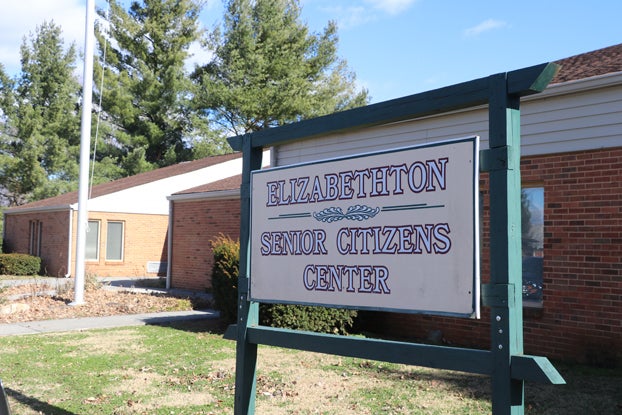Tennessee loses its ‘Great Conciliator’
Published 7:44 am Friday, June 27, 2014

Former U.S. Sen. Howard Baker Jr. is pictured in the cab of Clinchfield No. I with George and Ed Hatcher as his “Baker Special” rolls across the state in 1972.
Howard Baker’s question sliced to the core of Watergate: “What did the president know and when did he know it?”
Repeated over and again in the senator’s mild Tennessee drawl, those words guided Americans through the tangle of Watergate characters and charges playing daily on TV to focus squarely on Richard Nixon and his role in the cover-up.
Baker’s famous question has been dusted off for potential White House scandals big and small ever since.
Baker, who later became Senate majority leader, chief of staff to President Ronald Reagan and one of the GOP’s elder statesmen, died Thursday at his Tennessee home of complications from a stroke suffered days earlier, according to an email distributed at the law firm where Baker was senior counsel. He was 88.
Baker emerged as an unlikely star of the Watergate hearings in the summer of 1973.
When chosen as vice chairman — and therefore leading Republican — of the Senate special committee, he was a Nixon ally who thought the allegations couldn’t possibly be true. Democrats feared he would serve as the White House’s “mole” in the investigation of the break-in at Democratic headquarters and other crimes perpetrated in service to Nixon’s re-election.
“I believed that it was a political ploy of the Democrats, that it would come to nothing,” Baker told The Associated Press in 1992. “But a few weeks into that, it began to dawn on me that there was more to it than I thought, and more to it than I liked.”
He said Watergate became “the greatest disillusionment” of his political career.
Baker’s intense but restrained style of interrogating former White House aides played well on camera. A youthful-looking, side-burned 47-year-old, his brainy charm inspired a raft of love notes sent to his Senate office; a women’s magazine proclaimed him “studly.” He was mentioned frequently as presidential material.
By the time Nixon resigned in 1974, Baker was a household name with a reputation for fairness and smarts that stuck throughout a long political career.
Nostalgia and Northeast Tennessee played big roles in Baker’s two re-election bids for U.S. Senate in 1972 and 1978, when the senator defied modern convenience for a statewide whistle-stop campaign behind an antique steam engine.
In 1972, the senator hired the Clinchfield Railroad’s remodeled 90-year-old steamer, the Clinchfield No. 1, to carry him and others, including political newcomers Lamar Alexander and Fred Thompson, as well as country music legend Roy Acuff, from Bristol to Memphis.
The four-day swing rolled through backyards rather than following the bus-bound highways that most politicians were using at the time, said Mark A. Stevens, co-author of “The One & Only: A Pictorial History of the Clinchfield No. 1,” published in 2013, and “The Clinchfield No. 1: Tennessee’s Legendary Steam Engine,” a book out this fall from The History Press.
The second book will feature a chapter focusing on Baker and his famous whistle-stop strategy.
“It’s what was so unique about it – Baker attracted everyone to his side, because people wanted to see the train,” said Stevens, who is a former Elizabethton Star publisher. “It was really brilliant on his part. The campaign train was called the ‘Baker Special,’ and Acuff changed his signature hit, ‘The Wabash Cannonball,’ into the ‘Baker Cannonball’ to the delight of those who showed up at the numerous stops across Tennessee.”
According to Stevens’ upcoming book, Baker knew he had tapped into something unique with his train campaign.
“She pulled that train across the state with great success and without a breakdown,” the senator told the Associated Press.
Baker had a fine political pedigree — his father was a congressman from Huntsville, Tenn., and his father-in-law a prominent senator from Illinois. Over the years, his name would be knocked about for big Washington jobs including vice presidential candidate, Supreme Court justice and CIA director. But his focus remained on the Senate and, at times, the White House.
In 18 years as a moderate Republican senator, he was known for plain speaking and plain dealing. He had a talent for brokering compromise, leading some to dub him “the Great Conciliator.”
“Senator Baker truly earned his nickname: the Great Conciliator. I know he will be remembered with fondness by members of both political parties,” Sen. Mitch McConnell of Kentucky said on the Senate floor Thursday, announcing Baker’s death to the chamber.
Tennessee Sen. Lamar Alexander, who once worked as an assistant to Baker, called him “Tennessee’s favorite son” and “an indispensable friend.”
U.S. Rep. Phil Roe called Baker “a true statesman who always put the greater good before party lines. Howard Baker set an example we’d all do well to follow.
And Tennessee Democratic Party Chairman Roy Herron also weighed in: “Senator Baker earned the respect of Democrats as well as Republicans. He worked in a bipartisan way with presidents and colleagues on both sides of the aisle.
Baker was minority leader when the Reagan landslide swept Republicans into control of the chamber in 1980 Reagan, and he became the first Republican majority leader in decades.
Putting aside his own reservations about Reagan’s economic proposals, Baker played a key role in passage of legislation synonymous with the “Reagan Revolution” — major tax and spending cuts combined with a military buildup.
Baker considered his years as Senate majority leader, 1981 to 1985, the high point of his career. He called it “the second-best job in town, only second to the presidency.”
He made a fleeting bid for that best job in 1980, and left the Senate with an eye to another presidential run in 1988. Instead, he ended up in the White House as Reagan’s chief of staff.
During much of the 1980s and ‘90s, Baker grappled with the illness of his wife, Joy, daughter of Everett Dirksen, a former GOP Senate leader. She died in 1993 after an 11-year battle with cancer. The couple had two children.
In 1996, Baker married Kansas Sen. Nancy Landon Kassebaum. It was the first time two people who had served in the Senate married.
President George H.W. Bush sent Baker to Moscow in 1991 to meet with Soviet leader Mikhail Gorbachev before a summit; George W. Bush named him ambassador to Japan in 2001.
An accomplished amateur photographer, Baker carried a camera wherever he went. But he didn’t take any photos during the Watergate hearings.
“I felt that it was beneath the dignity of the event,” he said years later. “It turned out the event had no dignity and I should have taken pictures.”



